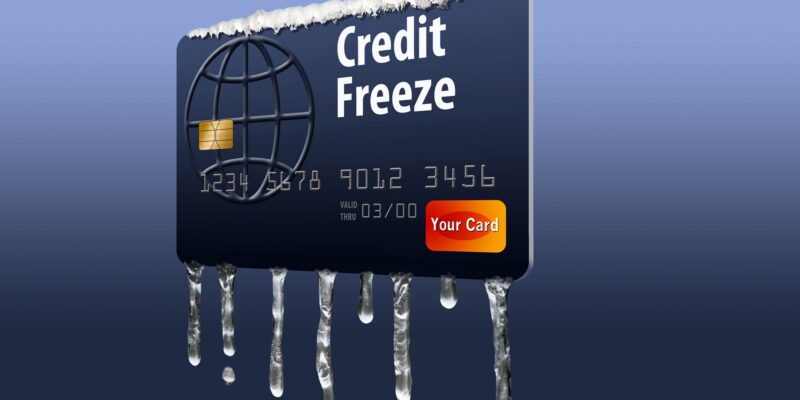CREDIT FREEZES HELP avoid thieves from opening brand-new lines of credit in another person’s name, however, most states permit credit bureaus to charge a fee for the service. That will alter this autumn.
The Economic Development, Regulatory Relief, and Consumer Security Act, signed on May 24, will let Americans freeze their credit files for totally free. “It’s a small step in the right direction,” states Jeff Taylor, co-founder and handling director of Digital Threat, an innovation services company that works with the home loan market. Removing fees will make this security tool more available, however, consumers also require to be aware that a credit freeze is not a cure-all for identity theft.
Here’s what you need to learn about credit freezes, the brand-new law, and whether a freeze is right for you.
How a credit freeze works. The 3 significant credit bureaus –– Equifax, Experian, and TransUnion –– are required by state laws to provide an approach to freeze credit. Also understood as a security freeze, a credit freeze limits access to a credit file.
That means a new lender can’t obtain or review your credit report if you have frozen it. In theory, this ought to avoid any brand-new lines of credit from being opened in your name. Those who have been victims of identity theft or who know their personal info was accessed in a security breach are typically encouraged to use a credit freeze to ensure their data isn’t utilized to open brand-new accounts. Anybody who freezes their credit file will have to ask for the credit bureaus thaw it if they want to obtain a loan or other line of credit themselves.
In lots of states, the credit bureaus are allowed to charge a fee to freeze and thaw a credit report. While the fee is typically waived for victims of identity theft, others may be needed to pay anywhere from $3 to $10, depending upon what their state’s law permits. Customers need to start a freeze with each credit bureau individually, which indicates the total cost in some states could be as high as $30 each time they add or raise a credit freeze.
“It’s a nominal cost,” states Victor Powell, a licensed monetary organizer with monetary firm Tanglewood Overall Wealth Management in Houston, “however it can definitely build-up, especially if you have a number of individuals in your home.”
What you need to understand about the credit freeze changes. The requirement to spend on credit freezes will end this year. Plus, the brand-new legislation will make modifications to banking laws relating to home loans and credit, amongst other things. It also requires credit bureaus to provide free credit adheres to consumers. The arrangement will go into result 120 days after the expense’s signing, which will be most likely be in mid-September.

“This brand-new law … will help consumers by improving the economy and assisting in the fight against identity theft,” states Francis Creighton, president, and CEO of the Customer Data Industry Association, a trade group that consists of 100 business members consisting of credit bureaus and home loan reporting business.
You are more than 1 credit score. Inspect all 3 complimentary with a 7-day trial. Discover more
In addition to supplying complimentary credit freezes for grownups, the law enables parents to freeze the credit of their minor kids as well. Doing so avoids someone from opening an account utilizing a child’s name and Social Security number without the parent’s consent or understanding. Presently, credit freezes can be asked for either over the phone or online, and there is no indication that will change after the arrangements of the brand-new law go into impact.
How the brand-new law will impact consumers. Credit freezes can be a helpful tool, but consumers need to be mindful of their constraints. For instance, a freeze needs to eliminate the possibility of a fraudster opening a brand-new line of credit, but it will not avoid someone who has access to an existing account from using it. A credit freeze also will not avoid tax identity theft in which someone files a fraudulent income tax return in another individual’s name.
Creighton says customers can take extra actions beyond a credit freeze to secure themselves. “People must ensure they are checking their bills for incorrect activity,” he states. “They need to inspect their credit reports every year to make certain there are no mistakes.”
Another thing to consider before putting a credit freeze on an account is whether you’ll be making a major purchase in the future. This may be particularly crucial for those in the market for a new house.
“We have the tightest [real estate] stock we have had in a couple of decades,” Taylor states. Homebuyers who need to quickly get preapproval for a property in a competitive market might find the procedure of unfreezing credit to be troublesome. “It might slow down the speed at which you can proceed.”
Each credit bureau supplies a telephone number along with a web kind that can be utilized to make a freeze request. Consumers who want all three bureaus to freeze their files should contact all three businesses independently. When their determining details are confirmed and the freeze is enacted, a PIN number will be issued. Since each credit bureau provides its own PIN, customers might have three numbers to shop. To thaw a credit file, the correct PIN needs to be offered to the issuing bureau. If that number has been lost, the procedure of thawing a report can be further postponed. “It’s not that big of an offer,” Powell says, “however it’s another thing to keep an eye on.”
Keep in mind: A lock is not a freeze. Credit bureaus like Equifax offer services that lock an account and these locks may be faster removed than a freeze. “A lock and a freeze have the very same influence on your Equifax credit report, however, they aren’t the exact same thing,” states Jerry Grasso, a spokesperson for Equifax Global Customer Solutions. Locks do not need a PIN and generally may be handled by means of a mobile app, but they also aren’t controlled by the federal government in the very same way as freezes are monitored.
Locks are used straight from credit bureaus to consumers and might be bundled with credit tracking and scams alert services. Currently, the true identity service from TransUnion and Lock & & Alert service from Equifax are provided complimentary of charge. Nevertheless, there is no law needing they remain free, as holds true with credit freezes. The third major credit bureau, Experian, has a CreditWorks program that includes a lock and $1 countless identity theft insurance for $4.99 for the first month and $24.99 for each following month.
In spite of the benefit of lock programs, Powell still states individuals can’t go incorrect with a credit freeze. They’re readily available at no charge beginning this fall and with government regulations behind them, “it’s the finest value,” he says.
























Comments